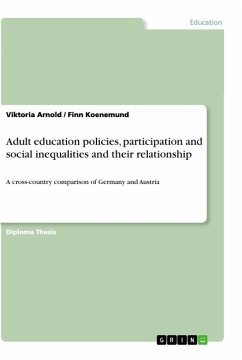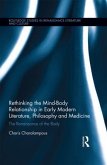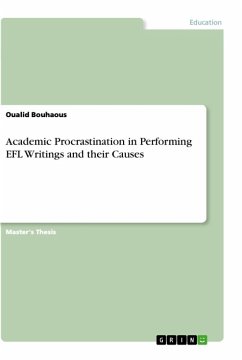Diploma Thesis from the year 2020 in the subject Pedagogy - School System, Educational and School Politics, Hertie School of Governance, language: English, abstract: This thesis specifically investigates incentive structures and the removal of barriers to enhance a more equal participation in adult education to prepare the workforce for upcoming challenges related to the future of work. It aims at contributing to this discussion and indicates how adult education policies can be used to possibly reduce socio-economic inequalities in accessing adult education and provide workers with the skills needed in the (future) labour market. This topic seems to be largely unexamined and no systematic cross-country comparison has been conducted in the past. While human capital accumulation in terms of primary education has been well investigated, research in the context of post-schooling phase, investigating the direct correlation between investing in (adult) education and its returns, largely remains a black box.Two European countries that are considered particularly affected by automation will be examined, namely Austria and Germany. Whereas in Austria, 16.6% of jobs are at high risk of automation and 29.7% at risk of significant change, the figures for Germany are slightly higher with 18.4% of jobs at high risk of automation and 35.8% at risk of significant change, compared to an OECD average of 14% and 32% respectively. Additionally, both countries share similar institutional structures and are therefore considered comparable.This thesis aspires to shed light on government intervention and the adult education market to possibly reduce social inequalities by setting incentives and removing barriers to enhance overall (and a more egalitarian) participation in adult education.Finally, it seeks to contribute to the scientific and societal debate as well as to provide approaches on how to design effective, efficient, and egalitarian adult education policies. The research question to be answered aims at empirical hypothesis testing and is of explanatory nature.








